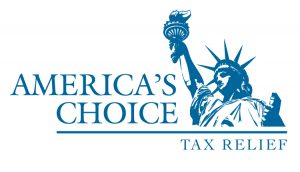Taxpayers qualify for financial hardship status when paying their taxes impedes their ability to pay the necessities that support them and their families.
Financial hardship is telling the IRS that you can’t pay your taxes. Usually, it can take you in two directions – Currently Not Collectible and Offer in Compromise.

Best Options if You’re in Financial Hardship
You may qualify for a short-term pause on their tax collection process – Currently Not Collectible. To summarize, the IRS will not place any levies on your property or assets, won’t take money from your paycheck, or freeze your bank account.
You should know that Currently Not Collectible is not automatically applied to your account. You and a tax professional need to prove your financial situation. You can read more about that here.
Aside from Currently Not Collectible, you may also qualify for an Offer in Compromise.
If you qualify for financial hardship, you are likely eligible for an Offer in Compromise settlement
How to Apply for Financial Hardship Status
We recommend contacting a tax relief firm to assist you with completing an IRS form. The IRS uses the forms to determine your ability to pay your tax balance. You’ll want your forms filled out accurately without doubt that your expenses and income are correct.
You’ll also need to state the value of investments, stocks, bank accounts, real estate, and many other assets you may have.
What is Considered Financial Hardship?
Financial hardship is when you cannot feasibly pay for your basic living expenses.
These expenses include
- Housing and Utility standards include
- mortgage or rent
- property taxes
- interest
- insurance
- maintenance
- repairs
- gas
- electric
- water
- heating oil
- garbage collection
- residential telephone service
- cell phone service
- cable television
- Internet service
- food
- housekeeping supplies
- apparel and services
- personal care products and services
- Miscellaneous
- “IRS Taxpayers can use the miscellaneous allowance to pay for expenses that exceed the standards, or for other expenses such as credit card payments, bank fees, and charges, reading material and school supplies.”
- Healthcare expenses – insured or out-of-pocket expenses.

How Long Does Financial Hardship Last
Ultimately, financial hardship depends on your financial situation every two years. It can last up to 10 years from when the IRS processes your owed taxes to the Collection Statute Expiration Date (CSED). It is highly recommended you collaborate with a tax professional to create a tax relief plan in the meantime. Once the IRS decides that you earn enough money to pay back your taxes due to income changes, you may not be as prepared as you would like.
To stay in the Financial Hardship Program, you must show the IRS you would struggle to pay taxes every two years. They will continue pausing your collection on back taxes based on your information.
What If I Have New Back Taxes?
If you currently owe taxes and are in the program, you will need to reapply for financial hardship again for any new back taxes you owe. The IRS treats each tax year separately.
For example, if you’re in the program from the 2019 tax year and owe taxes from 2021, you’ll need to apply for financial hardship for your 2021 tax liability.
Applying again does not affect your current hardship status. However, it may affect your ability to qualify for hardship status on future taxes. Speak with a tax professional about your new back taxes. They will help you create a plan of action and give you an assurance that your liabilities won’t negatively impact you.
IRS Fresh Start Program
The IRS Fresh Start Program helps you and thousands of other taxpayers resolve their tax debt. It gives you several programs you may qualify for to reduce, eliminate, or ease your tax liability into more affordable payments.
It gives you a chance to pay back your debt over time rather than all at once. The programs also allow you to avoid many of the IRS’s collection processes.
- Interest
- Penalties
- Tax levies
- Tax liens
- Wage garnishments
- Bank account freezes
Speak with a tax professional from America’s Choice Tax Relief. We offer a free consultation that examines your overall financial situation. We’ll determine what programs you qualify for based on your tax liability.
Financial hardship is a tough place to be in, and you need all the help you can get, so you’re in further debt. With the IRS, you need to act fast and efficiently. We’ll take care of your tax liability for you. Call now to start your life with financial freedom!
